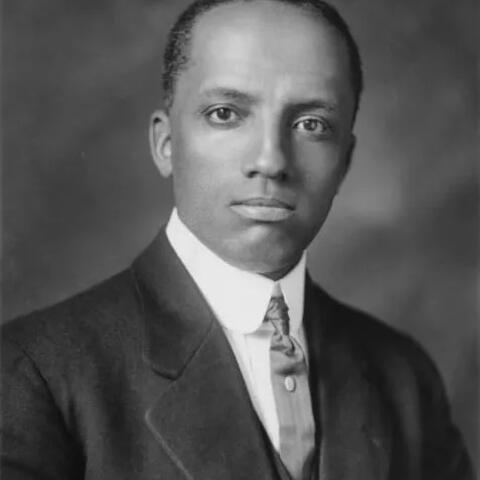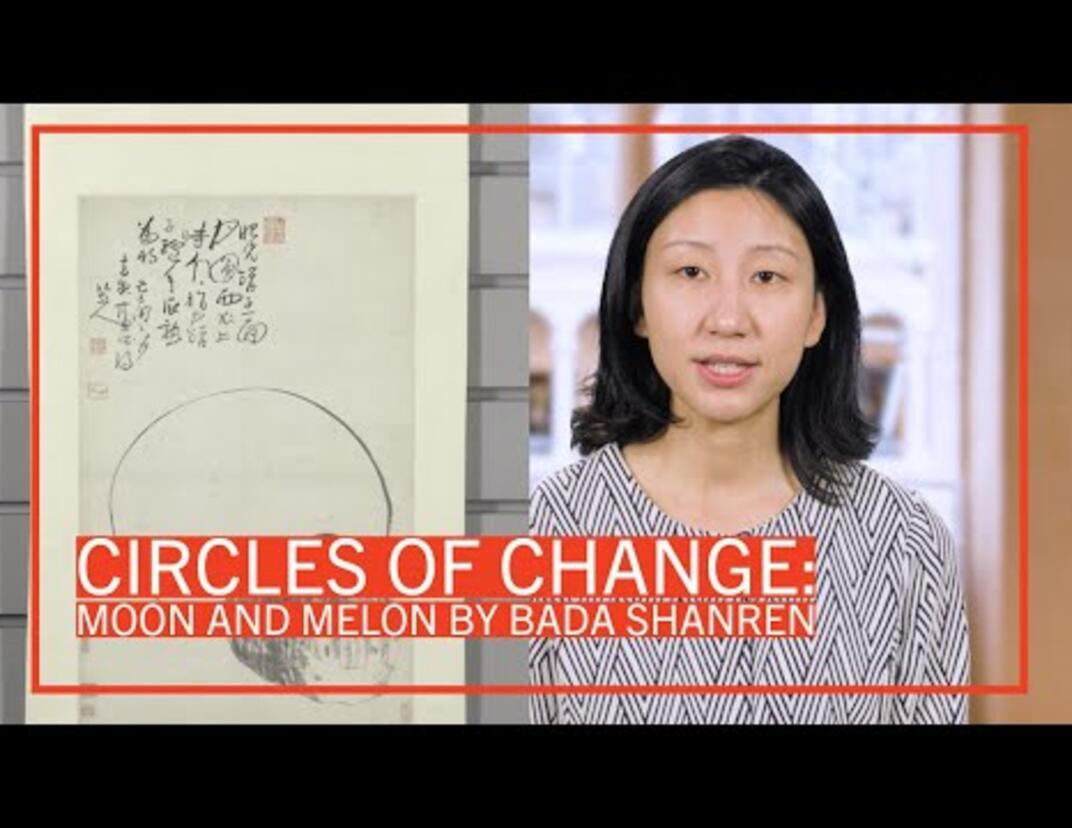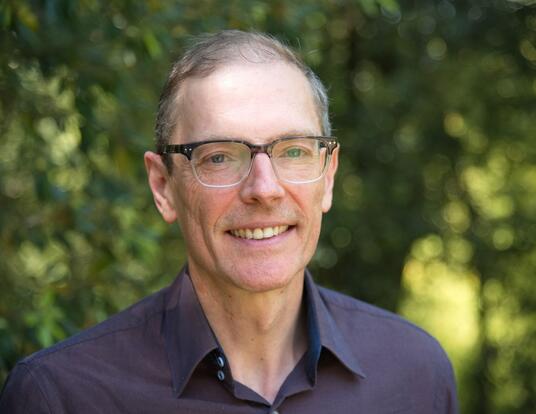A Conversation with Music's Suzannah Clark
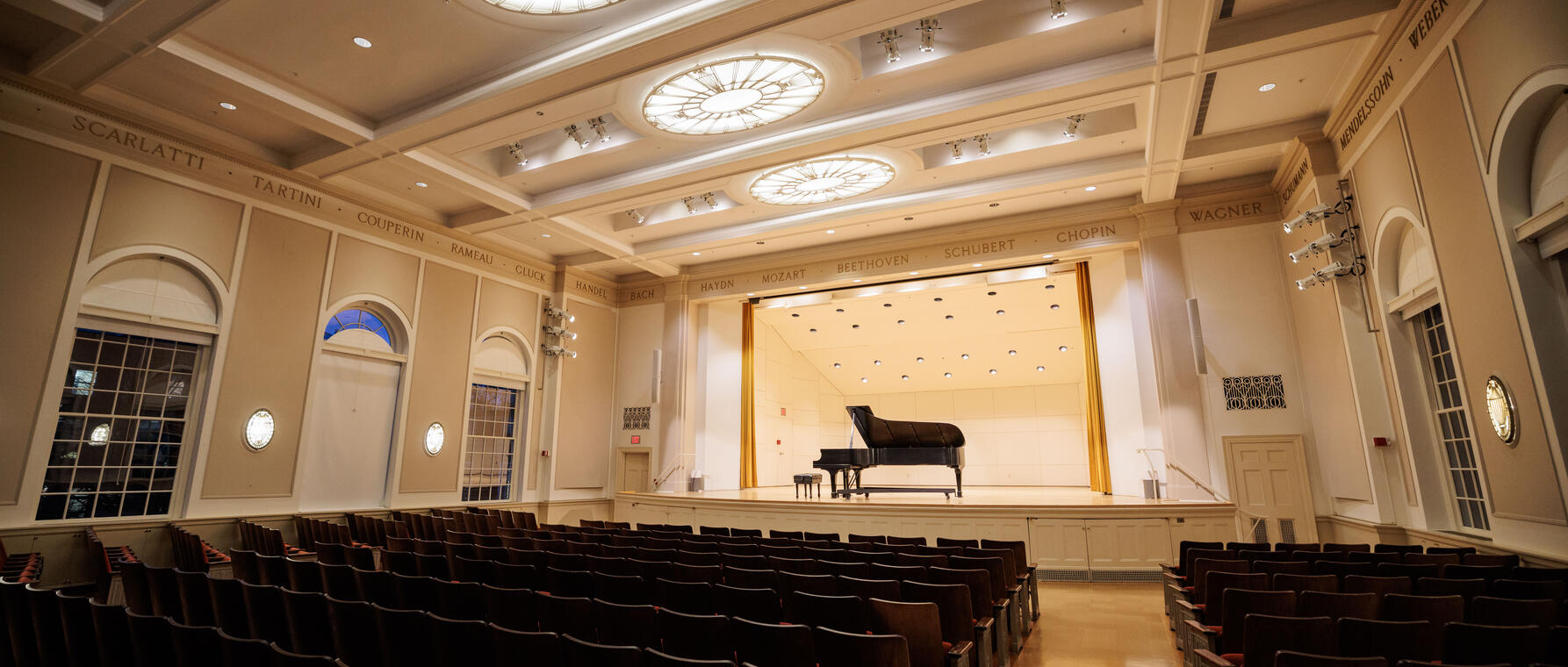
Earlier this year, The Advising Project sat down with Suzannah Clark, Morton B. Knafel Professor of Music and Director of the Mahindra Humanities Center, to discuss graduate advising at Harvard and beyond. Clark discussed topics including faculty members' responsibilities to their graduate students, choosing an advisor, and why playing ice hockey has made her a better role model for her students.
What comes to mind for you when you hear the word “advising”?
Responsibility. When you have a PhD, you’ve of course had an advisor, but when one becomes an advisor oneself, you realize how tremendous the responsibility is. To riff on the “golden” rule: “think about how you would like to be advised yourself when you advise your students.”
Conversations with the Graduate School have prompted me to talk more often with students about how frequently we’ll meet, what happens when I’m on sabbatical or if the student is on a grant researching off-campus, that sort of thing. In addition, it’s important to recognize that different students need different kinds of advising practices, even from the same faculty member. I once had set up weekly meetings with all of my advisees during a sabbatical, and one student came to me and said “Actually, this is too much. I’d rather meet every-other-week,” and that was fine. Now, I’m much more flexible. There is no magical formula for advising! In being more conscious of these interactions, one can adapt to what students want. Having been an advisor for many years, too, I might be able to recommend something to students they don’t even know they need.
What was your PhD advisor like? What successful practices did any of your mentors or advisors engage in?
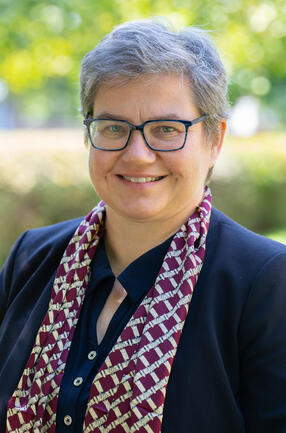
At Princeton at the time, we had two-person committees. Scott Burnham was my advisor; Carolyn Abbate was my reader. They were both fantastic. I knew they were there as supporters, and I certainly found them intellectually formidable! I was extremely fortunate they were my mentors.
The typical institutional practice at the time was to meet with advisors once you wrote something, as well as to strategize about grant applications and research trajectory. I was somebody who would only show a complete draft. I have since realized that sharing an early draft is a really important thing to do—it never occurred to me to do that as a graduate student. One can be more open to feedback if one is earlier in the writing process. I appreciated that Scott and Carolyn were very generous and attentive readers, but also pretty frank. That wasn’t always easy, but boy did they improve my writing! I still have my annotated chapters from them—I kept them. To this day, I remember vividly the passages they each commented on that opened up whole new avenues of thinking for my thesis.
I would include those I worked with as an undergraduate amongst my advisers, too. I had incredible teachers at King’s College London. I treasure the memories I have of occasions when a tutorial discussion led to insights that changed the way I thought about music—I remember the feeling of excitement I had from those moments. From my perspective, I think the success of my mentors and advisors came from how they nurtured my curiosity.
What should a student consider when choosing an advisor? Is content expertise the most important consideration?
When a student pursues PhD thesis research, it is intended to be novel and never done before. So there is no “ideal” content advisor—the graduate student becomes the expert on the content. Within the Arts & Humanities, I also think sometimes when your subject is too close to the interests of your advisor, it can be tricky. At the beginning of my career, I advised a student on a project on composer Franz Schubert when I was also working on Schubert. I soon learned that the challenge in those circumstances is to ensure that students maintain the integrity of their own intellectual space. One of the inspiring things about music theory at Harvard is that the graduate students have been at the forefront of radical changes in the field. It’s one of the things I love about advising students at a place like Harvard. While the “content” of the research they and I do doesn’t necessarily overlap, I hope they would say that they chose me as an advisor because I encourage them to push the boundaries of habits of thought in the discipline of music theory.
What tips do you have for students who are considering changing advisors?
There can be a lot of reasons to change, so it will depend. It’s in everyone’s best interest for a student to have the best possible advising team. Switching advisors could be because of a simple thing, like a shift in interests. Maybe one member of the committee has really stepped up and a student wants to give them more credit; perhaps that means adding them as a co-advisor rather than a complete switch. But if switching is due to incompatibility, that’s inevitably tricky—one has to realize that it’s easy to feel hurt as a faculty member when a student wants to shift advisors; it’s also likely to be very stressful for the student. On the student side, there can be worry of, “How will they take this?” But it’s on the faculty member to take it well! Usually, it can help if the new advisor is aware of the situation so they can act, hopefully, as a facilitator.
What makes for a strong student-faculty advising relationship?
If I look back over the years, a pattern for a strong student-faculty relationship comes about when each party contributes positively in their respective roles. I aim to the best of my ability to offer feedback on work, advise on career paths, support students in their decisions. If students are doing their work to the best of their capacity and sort of just being professional about what they do, I feel like that naturally creates a good relationship. Difficulties occur when one side, for whatever reason, thinks the other side is not living up to something. Then guilt comes in—potentially on both sides—and that starts to mess things up. If both faculty and students are working to the best of their professional abilities, that’s foundational. Treating others in a decent-human-being kind of way is foundational. I know I’m friendly—of course that’s not the same as being friends with everyone—but I have a personality I’m proud of (if I may say), where I think about what other people’s experiences are and try to treat people with empathy and decency. Unfortunately, we’re living in a world where that’s not always true of everyone. Being open to differences, especially differences in ways of thinking, is so important. For me, it’s totally okay if someone has different views than me. There are other places where we have common ground. I know I’ve had this with students before, where we think differently on certain issues, and that’s completely fine—it makes life more fun. We can still have a very good working relationship.
One of the tricky aspects of the graduate advising relationship is that both parties need to contribute while working within a power imbalance. What suggestions do you have for navigating this dynamic?
Hmm. From my perspective, advisors have to recognize that the power imbalance exists. It’s inherent. So I try to reveal ways in which the power imbalance can actually be helpful. I see myself, as an advisor, as somebody who is more established in the field. I have connections: when I attend conferences, there are people I know and have worked with, I have served on national committees, etc.—all of this brings a certain degree of power. I try to pass that power on, as it were, by opening up opportunity to others, by introducing people to other members of the field, things like that. True, there is a power dynamic but there’s also an experience dynamic. If one understands the power as experience, these experiences can be shared and distributed, then the power, to me, can be harnessed more positively.
At the end of the day, as a faculty member, you have responsibilities. You can also say that’s part of the power dynamic. You are responsible for your students, and it’s your responsibility to model what it means to be a faculty member.
Following up on that, how can students start to model what they are (hopefully) seeing from their advisors?
What I wish I had been told as a graduate student is that the way you handle yourself during your graduate days becomes your habit of living and working. As a graduate student, the best thing you can do is develop healthy habits of working as an academic. Generally speaking, academics find it hard to completely shut off from their work: if you’re doing fun things, you feel like you didn’t work hard enough or deserve them. When I taught at Oxford, I also played ice hockey for the city team. I was probably a better model for my students then because they knew I had a hobby!
One thing that served me well as a graduate student was the student-run conference that alternated amongst Princeton, Penn, and Cornell. I didn’t think about it at the time, but those people have ended up being my colleagues across the country. You are a student but also a professional. How you treat yourself, other people, and read, absorb, and relate to previous scholarship is how you want people to relate to you and your own work. In seminars, you rip things apart in this necessary practice of critique. But that’s something on a page, not a person. I hope I model for my students how to be a sharp critic but to remember that there’s a person behind the writing on the page.
We hear a lot from students that they are hesitant to reach out to their advisors because they know Harvard faculty are very busy and often overcommitted. What would you say to these students and their advisors?
In academia, one should never be too busy for one’s students. You are in a university setting because there are students. It’s also a real joy to see students progress and be successful. Students should realize: you’re giving your advisors something to be proud of! Faculty should be aware that some students feel like they’re imposing, and putting the onus of reaching out on the student is, in some cases, not fair. Even if you say “I’m happy to meet any time,” it is sometimes one’s role as an advisor to flip the script and reach out.
It can be really hard, at a place like Harvard, for students to indicate they are struggling or stuck, that you realize there could be six ways to write something and you can’t decide which to do. Sometimes just talking something through with your advisor, who is presumably experienced with these kinds of issues, is a valid enough reason to have an advising session.
What would you say to a student experiencing impostor phenomenon?
Join the club! It’s a very real thing. I always try to tell people not to think about it in terms of whether or not being admitted to Harvard was a mistake; instead, think about what you can do with the opportunity you have while you’re here. It can be really brutal to have your mind talking to you in a super negative way, constantly. It’s hard to tell that part of your mind to stop. But focusing on the opportunity is one thing I think can be helpful in these circumstances.
I’d also say, too, that the fact imposter phenomenon has a name is an important point. It is a real thing. It can be extremely debilitating. It’s not something you can just switch off. But you can work your way out of it, and talk to your advisor about it. I think all the time “How did I get here?!” I remember in high school, you know, people are saying about one of my classmates “Oh, I can see that guy being a future Prime Minister of Canada.” I’m pretty sure no one had me in mind for anything like that! I am utterly lucky and fortunate being here, and I try to think “I’m here, not someone else. How am I going to contribute to Harvard, to music theory, and to my teaching in a way that shows that I appreciate this opportunity, and do the best with what I have?”
How has being a graduate advisor impacted you?
One of the incredible things about the advisor/advisee experience is that, in many ways, you have an opportunity to figure out all the different ways to work with different people, and discover how different people think about music. It’s a fun experiment and testing ground for learning how you are as a human being and your ways of relating to all sorts of people. It’s kind of a beautiful thing!
I would also say, when you join a department in a university context, it’s one of very few contexts where, for example, as a faculty member you have colleagues for a long period of time, other faculty members but also graduate students. Even after advisees graduate that’s not the end—it’s an ongoing relationship. You’ll work together over many years, through many different life situations, through shifts in the field, etc. Actually, I think that’s a good thing—having to work out ways to deal with differences, deal with intellectual passions that may coincide or may collide. That is an exciting challenge in life! At the end of the day, I have learned a heck of a lot from my students.
Banner photo by Aram Boghosian
Get the Latest Updates
Join Our Newsletter
Subscribe to Colloquy Podcast
Simplecast


